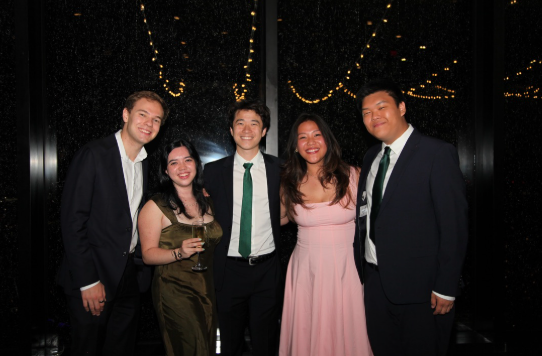The language of business doesn’t change
- Sep 2, 2019
- 3 min read
Translating consulting skills from the US to Japan
Americans have a tendency to exoticize the rest of the world. Even as the world globalizes, other countries and cultures remain foreign, exceptional, and special to us; these landscapes of indecipherable languages, mannerisms, and ideas are incomprehensible. Taking a moment to look a bit closer, however, reveals that in fact this façade of differences belies the reality: fundamentally, people are still people with many of the same dreams, problems, and motivations.

This past summer, I had the fortunate experience to be a part of the HKIC (Harvard Keio Initiative for Creators) program, a week-long experience organized by Keio University students in Tokyo, Japan where Harvard students and Japanese students interact, learn from each other, and solve problems. The students we met were fun, friendly, and always eager to both learn and teach; they became wonderful and close friends!
At the same time, the goal of the program came down to a consulting project. Japan has some major issues due to its aging population demographics. Restrictions on immigration and cultural norms have meant that there is now a surplus of unskilled labor jobs.
The startup we worked with is seeking to solve this problem by incentivizing young people to quickly take up jobs for short periods of time. Their mobile app lets employers post jobs requiring unskilled labor and then matches those jobs with jobseekers, assured of both short-term employment and instant payment. The interview process is eliminated along with any long-term commitments. Over the last few years, the company has grown dramatically and aims to grow dramatically over the next three years. The task given to us was to build a business plan to reach that target growth rate.
Working in Japan, as a foreigner, requires figuring out how to break down the barriers of language and culture such that the real business fundamentals can be tackled. Fortunately, our team included two incredible Japanese students who were able to translate not only the language but also the cultural context. Transposing the business into terms that we understood showed how the problems facing the startup came down to fundamental issues faced by all mainstream technology companies.
We broke the company down with a SWOT analysis, noting its Strengths, Weaknesses, Opportunities, and Threats. From there, we moved into a classic breakdown of its Pirate Metrics of Acquisition, Activation, Retention, Referral, and Revenue (AARRR) with a goal of highlighting where this startup could grow its user base. Finally, we walked through the company’s financials, translating them from Japanese to English and modeling them to see trends and growth rates.
In the end we discovered that the startup probably would not expect to reach its revenue targets with just an expanding user base. The required growth rate was too high. Even if the desired number of users were achieved, each one would not bring in nearly as much revenue as expected. We realized that we had to not only grow the core business but also the expanding monetization of their current customers.
We ended up recommending, in order of feasibility, that the startup: 1) Automate employer onboarding; 2) Create premium subscriptions for both employees and employers; 3) Gameify employment; 4) Monetize collected data; 5) Expand to foreign markets; 6) Build a holistic recruiting platform. Strikingly, none of this would be out of place in the United States. The process, the team, and the results all parallel classic tech consulting cases with which we are familiar.

The language of business, in capitalist, globalized societies doesn’t fundamentally change around the world. The context, scope, and values may change, but business, and consequently consulting, remains the same. As a result, we connected fluently with the Japanese students and with the startup's leadership in spite our linguistic divide. The cultural and language barriers dissolved as we found that we weren’t so different after all.
Dhruv Gupta is a Managing Director for CBE, and a senior at Harvard studying Computer Science and Government.


